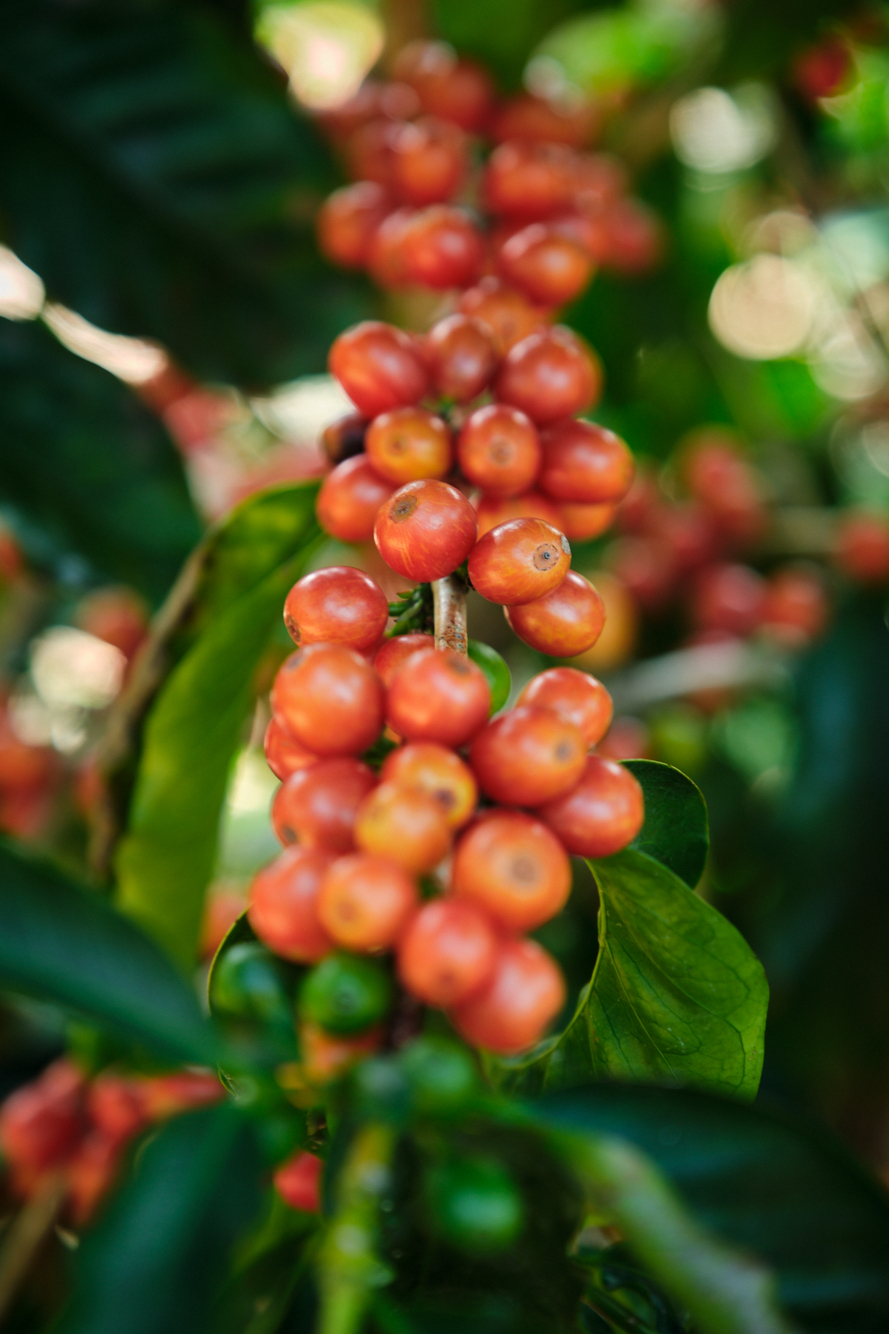This week's feature coffee was produced by Juan Carlos Artunduaga. It was grown on his estate, Finca La Granada, situated at an elevation of 1,700 meters above sea level in the municipality of Acevedo, Colombia. The elevated location provides an optimal microclimate characterized by warm, sunny days and cool nights, fostering the development of sweet, dense cherries. Juan Carlos' meticulous attention to detail and precise processing methods contribute to preserving the coffee's excellent flavors, resulting in a delightful lot.
This lot is made up entirely of the coffee variety known as "Pink Bourbon". But what exactly is a Pink Bourbon? This is a variety of Arabica coffee known for its distinctive pink hue in its cherries, hence the name. It is highly regarded in the specialty coffee world for its complex flavor profile and potential for producing exceptional quality coffee.

Pink Bourbon coffee cherries. Photo from Perfect Daily Grind
The exact origins of Pink Bourbon are still somewhat uncertain, and previously, the variety was thought to have originated in Colombia, particularly in the southern region of Huila. Despite its name, recent research suggests that Pink Bourbon may not be directly related to the Bourbon variety at all, but may have descended from an Ethiopian landrace variety. Pink Bourbon cherries typically exhibit flavours reminiscent of citrus fruits, delicate florals, and honey-like sweetness, with tropical and floral undertones.

Photo from Cafe Imports
From a production perspective, some farmers have noted that Pink Bourbon exhibits greater resistance to diseases compared to the Bourbon varieties it grows alongside, possibly due to its diverse genetic origins from Ethiopian landraces. Some research shows that it is also more drought resistant than other varieties, and this resilience can be beneficial in regions prone to water scarcity or irregular rainfall patterns. Other characteristics that have been noted by producers is that it doesn't mature as quickly as other varieties, allowing complex sugars in the seeds to form slowly, which can positively impact flavour. It has also been noted to produce higher and healthier yields than its counterparts.

